Search
Search Results
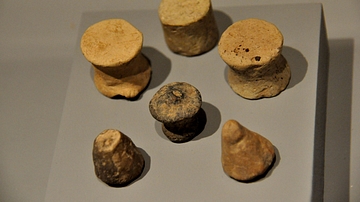
Image
Clay Tokens for Counting
These clay tokens represent the first form of counting, before the invention of writing. They date back to the Neolithic period, 8000-7000 BCE and were found in Tapa Raza, south-east of modern Sulaimaniya Governorate, Iraq. (The Sulaimaniya...
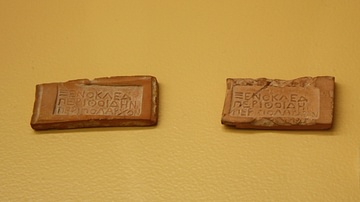
Image
Greek Clay Passport Tokens
Clay tokens probably used as passports by travellers or messengers reporting between military headquarters. Belonging to Xenokles, a border commander, 4th century BCE. (Agora Museum, Athens)
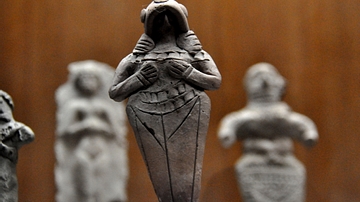
Image
Clay Figurine of a Naked Woman from Nippur
Clay figurine of a naked woman. She puts her hands on her breasts. Probably votive. From Nippur, Iraq. Isin-Larsa Period, 2000-1800 BCE. (The Sulaymaniyah Museum, Iraq).
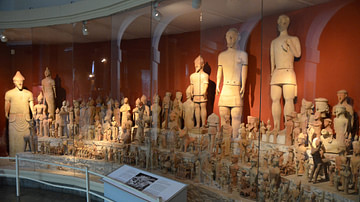
Image
Cypriot Votive Clay Figurines
Votive clay figurines found in situ in the sanctuary of Agia Irini on the northwest coast Cyprus. Dating back to the 7th and 6th centuries BCE, the figurines are displayed in the Cyprus Museum as they were found and depict priests with bull-masks...
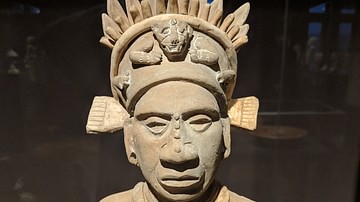
Image
Clay Maya Nobleman Figure
Maya Nobleman, Jaina, Maya culture, Late Classic Period, c. 600-900 CE. Campeche, Mexico. Fired clay with remnants of paint.
Exhibited at Museum Rietberg, Zurich, Switzerland.
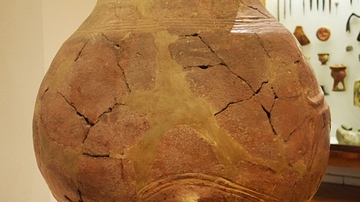
Image
Ancient Clay Vessel from Georgia
This very large clay vessel was unearthed in Zhinvali, Georgia and dates from the first half of the 3rd millennium BCE. (Georgian National Museum, Tbilisi)

Image
Protective Clay Plaque from Ur
This is a clay plaque depicting a naked woman, standing on a platform and holding her breasts. Such plaques were made to protect women and ensure their safety during labor. From Ur, Southern Mesopotamia, Iraq. Circa 700-500 BCE. (The British...
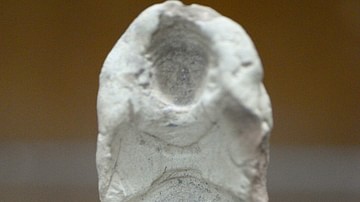
Image
Woman's Figurine Clay Mold
Clay mold which was used for making a woman's figurine. The woman is naked and she stands and holds her breasts by her hands. From Mesopotamia, modern-day Iraq. Old Babylonian period, 2003-1959 BCE. The Sulaymaniyah Museum, Iraq.
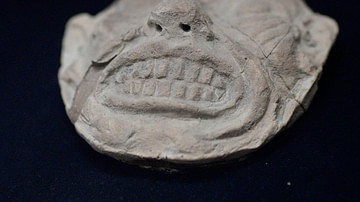
Image
Clay head from Old Babylonian period
Clay head from Mesopotamia, modern-day Iraq. Old Babylonian period, 2003-1959 BCE. The Sulaymaniyah Museum, Iraq.
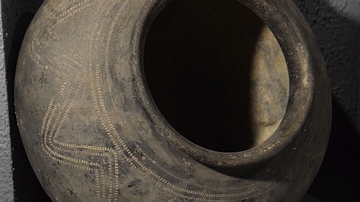
Image
Armenian Patterned Clay Vessel
This ancient clay vessel was made in what is present-day Armenia. It dates from the 18th-16th century BCE. (Metsamor Historical-Archaeological Museum-Reserve, Taronik, Armenia)